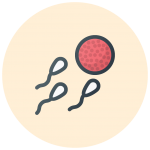Your life is precious. Stay informed.
What is HIV and AIDS?
Are these same or different?
Human Immunodeficiency
Virus.
HIV is a virus that causes the infection
of HIV in humans.
Acquired Immunodeficiency Syndrome.
AIDS is the condition or syndrome that is caused by
the HIV viruses.
Being infected with HIV can lead to the development of AIDS, which stands for acquired immunodeficiency syndrome. AIDS develops when HIV has caused serious damage to the immune system (defense system of the body against infection) of the body. This occurs at a later stage when the defense system parameter – CD4 count (white blood cells) falls which results in poor immune status and the person starts getting prone to catching multiple infections which are called opportunistic infections such as recurrent TB, pneumocystis carinii STIs etc.
Nature of HIV

Mechanism of HIV





- TB is a common infection BUT a healthy functioning immune system can keep it under control very successfully.
- TB can infect any organ in the body. If it is in lungs it is called pulmonary TB and if in any other organ it is called extra pulmonary TB. TB in other organ besides lungs will not give signs of persistent cough. Usually the signs of TB are loss of weight , low grade fever and over all weakness.
- Pulmonary TB or TB in lungs can be transmitted through air / aerosols.
- It thrives in poor communities and in communities that live close together in crowded spaces.
- if the immune system becomes weaker or fails as in AIDS syndrome , TB infection reoccurs in any organ of the body.
- The best defense to prevent TB infection is to stay healthy by eating healthy food, avoid addiction, play sports / regular exercise and access health care if you see any of the signs of TB (low grade fever/ loss of weight/ long period of cough /general weakness).
- At the initial stage of the HIV infection, a person is highly infectious. If one suspects that they are newly infected, it is extra important for them to abstain from sex or practice safer sex.
- HIV is transmission can be prevented from mother to child. If one is HIV positive and becomes pregnant, then they should inform the doctor. Accordingly, the hospital staff can take the proper precautions during pregnancy, delivery and post delivery care. The doctors will also give anti-retroviral medication – ART ( HIV medication) to prevent HIV transmission of mother to child.
- More than 85% of HIV infection is through sexual route and lesser through blood transfusion, injections, breastmilk, mother to child of HIV transmission during delivery and other fluids.
- HIV is treatable but not yet curable.
- Always treat a person living or personally affected by HIV with care and love.
- HIV is treatable with antiretroviral medication/treatment ART or ARV. Taking ARVs daily and without gap helps a person living with HIV live a normal life. Taking ARV helps reduce the virus count in a person living with HIV and hence there are less chances of them infecting others.
- Even a doctor cannot tell by looking at a person if he or she has HIV virus. One can determine HIV status mainly through blood tests and sometimes by certain saliva tests. There are mainly two kind of blood tests that detect HIV – test for checking if the body has ‘antibodies’ against HIV or directly testing if one has HIV ‘virus’ in the body. The body usually takes between 3-6 months to produce antibodies (defense army against an infection).
- During this period of getting infection to 6 months, one can get wrong test results such as false positive or false negative. It is important to take tests for HIV antibody detection after 6 months. Blood tests to detect HIV virus can be done time any time. Two different blood tests should be conducted to confirm if one is HIV positive. HIV tests are done in diagnostic laboratories.
related to HIV
- HIV is only transmitted through sex.
- People who get this infection will always die due to HIV.
- PLHIV are immoral and risk for others.
- One cannot acquire HIV through- kissing, hugging, sharing food, toilet seats, bathing, sweat.
HIV and AIDS
- Every person has right to get tested/not get tested for HIV, and to access confidential counselling and testing.
- HIV affected people can live a healthy life with support of family, community and government with safe sex practices.
- Group sessions, forming support groups, emotional support, partner education and counselling, family counselling, assistance for proper nutrition, medicines and care.
- HIV affected people have the right to live life free of stigma and discrimination with No discrimination at workplace, community and family.
- Ensuring access to healthcare services, ART/ARV treatment, cost effective of free ART/ARV treatment, in order to help PLHIV to maintain proper nutrition and healthy living.
- Supporting Children who have lost one or both parents due to AIDS, providing greater access to information, prevention, testing and treatment.

Sexually transmitted infections (STI), also referred to as sexually transmitted diseases (STD) and venereal diseases (VD), are infections that are commonly spread by sex, especially vaginal intercourse, anal sex or oral sex. More than 30 different bacteria, viruses and parasites are known to be transmitted through sexual contact.

- Access immediate medical care with associated counselling in STI clinics or department of dermatology if you suspect you have STI or exposed to STIs or need information on STIs.
- STIs are treatable and most are curable.


- Avoid risky sexual behavior
- Correct and consistent use of condoms offer one of the most effective methods of protection against STIs, including HIV. Female condoms are effective and safe, but are not used as widely by national programmed as male condoms.
- Unprotected sex with one of the partner having STI.
- Persons who do not use condoms, and engage in unprotected intimate bodily/sexual behaviour and with multiple sex partners.
- Gay and bisexual men are at greater risk.
- If couples use only birth control pills or other methods apart from condoms.
- Addition to alcohol or drugs, which can affect the negotiating skills or decision making.
- Sex workers, or if sex happens in exchange for favours. The person who is receiving favour will try to oblige and may not ask for condom use.
- Young adolescents having more STIs as they encounter barriers in accessing Services, inability to pay for the medical tests, lack of information on STIs.
- Sexually active adolescents (15-19 years) and young adults (20-24years) are at higher risk of acquiring STIs for a combination of behavioural, biological, and cultural reasons, as compared to older adults.
In women, untreated STIs can cause:
- Pelvis Inflammatory Disease (PID), which is the inflammation of reproductive tract organs (uterus, ovaries, fallopian tubes).
- Scarring and fibrosis develop in these organs. Untreated PID can lead to infertility, chronic pelvic pain, ectopic pregnancy.
In men, untreated STI’s can cause:
- Testicular infections
- Infertility
- Even death
FACTS

